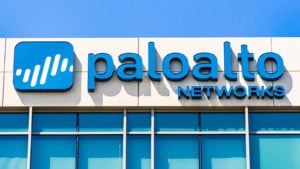The first one stands out for its outstanding financial results, showcasing significant gross merchandise value (GMV) gains and a growing user base. This illustrates its ability to draw in and keep buyers and sellers, which results in increased transaction amounts and earnings.
Likewise, the latter is notable for its remarkable rise in Remaining Performance Obligation (RPO), which indicates robust revenue visibility and the capacity to win long-term customer commitments. Investors will feel more confident about the company’s stability and potential revenue streams.
The third, meanwhile, has invested in state-of-the-art AI-driven product suites that improve campaign performance and customer experience, marking a major advancement in innovation.
These three businesses offer a combination of sound financial standing, promising markets and astute strategic planning.
GigaCloud (GCT)

GigaCloud (NASDAQ:GCT) has shown impressive financial results. For instance, over the 12 months (ended 2023), GigaCloud Marketplace GMV climbed by 53.3% year-over-year (YoY). Active 3P buyers jumped by 20.5% to 5,010, while active sellers expanded by 45.5% YoY to 815. At $158,569, the spend per active customer increased by 27.2% YoY. These operational KPIs show how well GigaCloud can draw in and keep buyers and sellers, which increases transaction volumes and earnings.
Comparably, net income increased for the entire year from $24.0 million in 2022 to $94.1 million in 2023, and the net income margin increased from 4.9% to 13.4%. GigaCloud’s capacity to effectively turn revenues into profits, as seen by the notable net income and margin growth, demonstrates solid operational performance and successful cost-control strategies.
Moreover, through the acquisitions of Noble House and Wondersign, GigaCloud has proactively increased its product line scope, market penetration, and technological prowess. In short, incorporating Wondersign improves GigaCloud’s digital signage and customer-facing solutions. Lastly, the acquisition of Noble House has expanded warehouse capacity, product SKUs and supplier networks.
Palo Alto (PANW)

The RPO of Palo Alto (NASDAQ:PANW) increased to $10.8 billion in Q2 fiscal 2024, representing 22% annual growth. The notable increase in RPO indicates a sizable backlog of contracted revenue, which leads to potential stable revenue streams. Palo Alto’s ability to obtain long-term customer commitments and preserve solid customer relationships is reflected in its backlog. With a rising RPO, Palo Alto Networks has improved revenue visibility and predictability.
Thanks to this visibility, the company can more accurately project future financial performance, allocate resources and make well-informed strategic decisions. Additionally, Palo Alto’s financial estimates for 2024 signify solid revenue, billings and EPS growth projections. Total billings of between $10.10 billion and $10.20 billion are projected, indicating an increase of 10% to 11% YoY.
PANW’s estimated top-line in 2024 stands between $7.95 billion to $8 billion, growing between 15% and 16% annually. Similarly, the forecasted non-GAAP operating margin falls between 26.5% and 27.0%, and the projected diluted non-GAAP net income per share is between $5.45 and $5.55. To conclude, the outlook strongly emphasizes approaching growth and profitability in a balanced manner, with goals for increased revenue and improved margins.
Viant (DSP)

Viant (NASDAQ:DSP) has made considerable investments in creating cutting-edge product suites that use AI and machine learning to improve the customer experience and boost campaign performance. Examples of these suites are AI Bid Optimizer and the Viant Data platform. The AI Bid Optimizer has garnered significant traction among clients. This enables them to realize an average of 35% cost per mile (CPM) savings.
Moreover, Viant intends to introduce a second-generation optimizer, which should result in even greater cost savings. The Viant Data platform, which activates first-party data without depending on cookies, has observed good early adoption rates. This has led to higher spending on the platform and outsized campaign results, especially among top customers.
Furthermore, among the four enterprise-grade self-service demand-side platforms available in the market, Viant is one of the only two that is buy-side solely, indicating that it is not involved in representing any publisher inventory. In summary, advertisers have responded favorably to the company’s focus on providing mid-market companies with a more data-driven platform.
Finally, the platform provides superior results and support compared to platforms tailored to substantial international brands’ needs.
On the date of publication, Yiannis Zourmpanos did not hold (either directly or indirectly) any positions in the securities mentioned in this article. The opinions expressed in this article are those of the writer, subject to the InvestorPlace.com Publishing Guidelines.
Yiannis Zourmpanos is the founder of Yiazou Capital Research, a stock-market research platform designed to elevate the due diligence process through in-depth business analysis.
